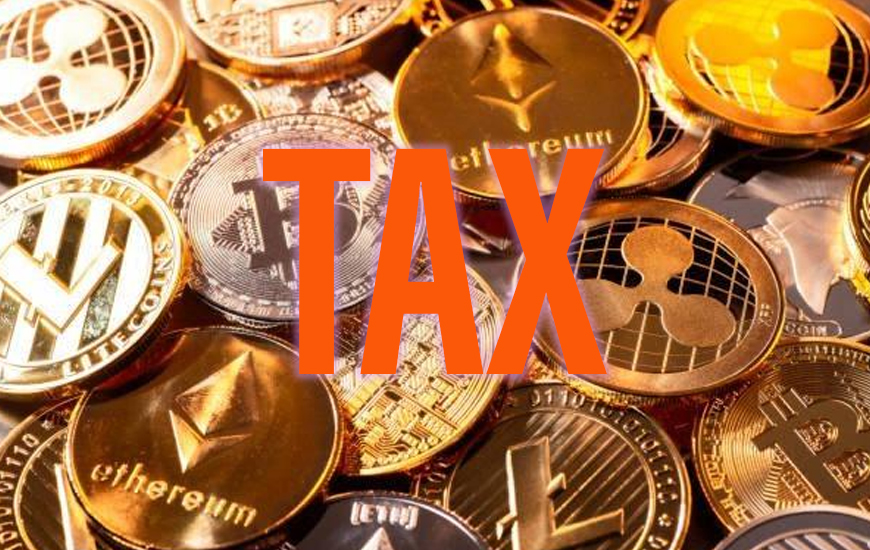- Crypto tax provisions are changes by US lawmakers
- The reconciliation bill to be voted in the Congress in two weeks
- Implementation of DeFi and NFT to change as well
House Democrats are wanting to close two potential escape clauses inside charge guidelines for digital forms of money, as indicated by a proposition distributed Monday.
As indicated by a report distributed by the House Ways and Means Committee headed by Rep. Richard Neal (D-Mass.), legislators accept they can finance financial needs through a set-up of “corporate and worldwide assessment changes.”
The pair of arrangements expect to keep people from revealing a duty misfortune by selling digital forms of money at a misfortune yet quickly (which means inside 30 days) purchasing similar digital forms of money.
Primary changes
The other arrangement plans to guarantee citizens appropriately report capital increases, regardless of whether they buy a balancing position on their ventures.
This arrangement remembers advanced resources for the helpful deal rules, hostile to manhandle governs already relevant to other monetary resources. The valuable deal rules in segment 1259 treat the reception of certain counterbalancing positions to recently claimed positions as deals of the recently possessed position. These principles keep citizens from securing venture gains without acknowledging available additions. The alterations made by this segment apply to available years starting after December 31, 2021.
This part incorporates items, monetary forms, and advanced resources in the clothes washer deal rule, an antiabuse rule beforehand relevant to stock and different protections. The wash deal rule in segment 1091 keeps citizens from guaranteeing charge misfortunes while holding an interest in the misfortune resource. The changes made by this segment apply to available years starting after December 31, 2021.
The Washington Post revealed Sunday that these propositions expect bringing some $16 billion up in charge income from the digital money area. The House report is expected to help support a $3.5 trillion foundation bundle Democrats desire to pass in the coming months.
The House panel is likewise increasing certain assessment related arrangements of the more extensive Senate Bipartisan Infrastructure bill. This incorporates the questionable crypto charge arrangement that the business ineffectively battled last month.
Implementation of DeFi and NFT
Giesselman predicts that, practically speaking, crypto trades will be the principal focal point of the new revealing necessity. I believe that the Treasury will apply the agent management rigorously for cryptographic money trades.
That includes concentrated trades like Coinbase, and could likewise include decentralized trades like Uniswap, Chandrasekera said. Albeit the detailing necessity will cover trades, Giesselman likewise said that the extent of how far controllers go past these exchanging stages stays unsure.
Erin Fennimore, worldwide head of data announcing at crypto charge programming supplier TaxBit, said that under the current foundation bill both NFTs and decentralized money (DeFi) would be covered as “intermediaries.” Joe Guagliardo, innovation and blockchain accomplice at Troutman Pepper, concurred with Fennimore, saying the incorporation of NFTs in the definition isn’t easily proven wrong.
Giesselman feels the authorization of the law will play out like that of the Foreign Account Tax Compliance Act (FATCA), which returned into impact in 2010. FATCA looked to battle tax avoidance by U.S. people holding resources and ledgers seaward, and required monetary resources held abroad to be accounted for to the IRS.
In any case, the underlying FATCA necessities were famously convoluted where everybody concluded there was an issue here with an absence of data that should have been fixed, Giesselman clarified.
As indicated by Giesselman, if the bill becomes law, the Treasury could head in a couple of bearings with regards to the crypto charge arrangement. In one situation, the Treasury could deliver proposed rules for consistency (which don’t have legitimate impact until finished), and open it up for public remarks. Then, at that point the Treasury will consider the remarks, and possibly alter or explain the proposed guidelines prior to delivering the last guidelines.
Steve Anderson is an Australian crypto enthusiast. He is a specialist in management and trading for over 5 years. Steve has worked as a crypto trader, he loves learning about decentralisation, understanding the true potential of the blockchain.


 Home
Home News
News







